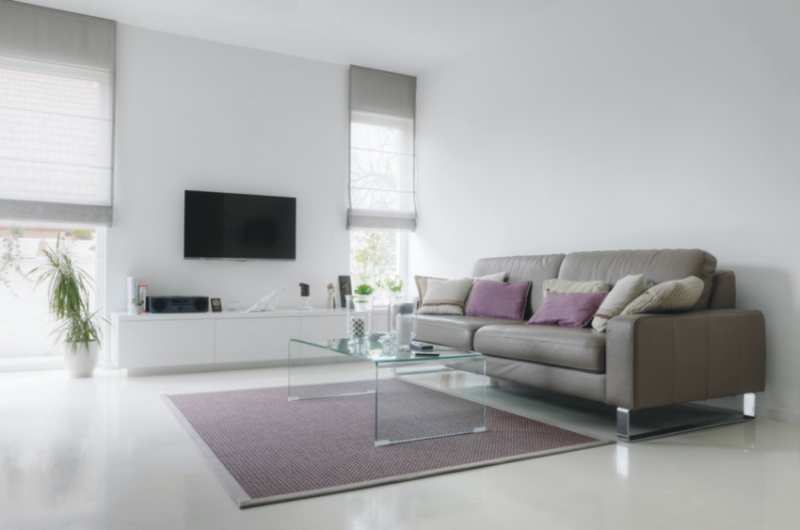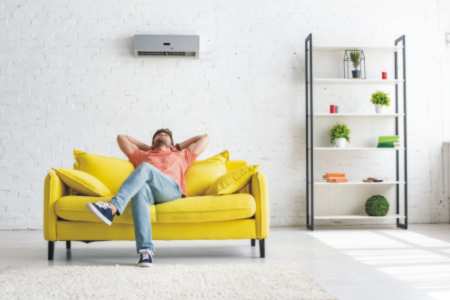
Minimalism is very popular and is getting more popular every day. That’s because it has improved the lives of so many people who have tried it. They receive many benefits including more money, more time, more space, and less stress. It also changes the mindset of the minimalist in ways that improve happiness. So when it comes to improving someone’s life, minimalism works. But what is it about minimalism that makes it work so well?
To answer this question, we will start by looking at the concept behind minimalism. We will then look at some of the benefits and why minimalism creates them. We will then look at how minimalism affects your efficiency at living your life. So, here is what makes minimalism work:
Minimalism is about getting rid of useless things.
There are many ways that minimalists define minimalism. Here are some of them:
Promoting what you value by removing what you don’t
Focusing on what matters by removing what does not
Keeping what’s useful and discarding the rest
The key concept here is removing whatever is useless. This is because useless things give you nothing in return for the resources they take. This removal of what’s useless provides the benefits of minimalism.
It removes the things that waste your space.
Most people have more things than they will use. This renders many of their possessions useless. If you have too many of them in a room, you can run out of space. When this happens, clutter will pile up. The room will become impossible to keep tidy.
By removing the useless things, you get back useful space. It’s what makes minimalism give you more space in your home. In fact, the size of what you got rid of is about equal to the space you got back. Your rooms will go from being impossible to being easy to keep tidy. They will function better too.
It reduces the money you waste.
It’s good to get rid of useless things. It’s even better to not buy them in the first place. Doing this means that you only buy something if it meets 2 conditions:
It serves a function that you need.
You have nothing else that can serve that function.
In fact, doing this is the most important physical step in decluttering. Skipping this step will slow down your decluttering. Also, skipping it will cause clutter to build up again after you declutter. But if you follow it, you will stop wasting money on things you don’t need. It’s one thing that makes you have more money with minimalism. Another is that you don’t spend money caring for things you don’t need.
It removes the things that waste your time.
When you stop buying things you don’t need, you no longer waste time shopping for them. Also, you don’t waste time taking care of them. This is one way that minimalism saves time. After decluttering, your home will need less time and effort to keep clean. This is another way that minimalism saves time. Minimalism also encourages you to avoid commitments that waste your time. So minimalism saves time by removing the things that waste it.
It teaches you that you already have enough.
As you declutter, you will notice that your quality of life improves. This can only mean that you had too many things. When you have finished, your quality of life will be better than when you started. This means that you don’t need any more things than what you already have. This satisfaction is one of the keys to happiness. If it doesn’t bring happiness, then it is a reckoning. You will realize that happiness doesn’t come from material things.
It straightens out your priorities.
When you realize that you have enough things, you also realize that they don’t bring happiness. Instead, you realize that happiness comes from your experiences and attitude. They include the following:
Spending time with people you enjoy being around
Doing and experiencing things you enjoy
Doing things that make you feel good about yourself
Moments of calm and inner peace
Recognizing that your life is good
This will lead you to pursue experiences instead of possessions. In other words, minimalism will straighten out your priorities.
It shows possessions for what they are.
Minimalism will let you learn that every possession is a tool of some sort. Also, every tool exists to help with an experience. The tool can make the experience quicker, easier, or more fun, among other things. Here are some examples:
A decorative item is a tool for adding beauty to your home.
A car is a tool to make it quicker and easier to travel on the ground.
A bed is a tool to help you to sleep in comfort.
You will learn that any possession that is not a tool is useless. Also, if it’s useless, it’s as good as garbage. You will also learn that stockpiling possessions will not bring happiness. That’s because tools by themselves don’t bring happiness. It’s like stockpiling wrenches in the hopes that they will bring happiness. So, minimalism shows possessions to be the tools that they are.
It shows the limits to comfort and necessity.
Minimalists learn that comfort is a sign that you are meeting your physical needs. Otherwise, you would not be comfortable. But once you meet your physical needs, doing extra will not add comfort. For example, if your stomach is full, eating more will not add comfort. Minimalism also shows that you don’t need more than what is necessary. Here are some examples:
If your car is safe, reliable, comfortable, and efficient, you don’t need one that costs twice as much.
If you are comfortable on a full-sized bed, you don’t need a king-sized bed.
If your cellphone does everything that you need it to do, you don’t need an upgrade.
Minimalism lets you know what is enough for you by showing the limits of comfort and necessity. This also shows the limits beyond which you are wasting your money and other resources.
It improves your life’s efficiency.
Efficiency is the ability to conserve resources when fulfilling a function. Excluding useless things stops them from wasting resources. Also, excluding useless things does not degrade the function of anything. This makes it the surest and safest way to improve efficiency. It is the same reason why engineers don’t add useless components to an aircraft design.
Excluding useless things is the essence of minimalism. Minimalism prevents wasting valuable resources like time, space, money, and effort. In other words, minimalism improves your efficiency at living your life. You will notice it as an easier life with more time, space, and money, plus a host of other benefits.

In summary, minimalism is about excluding whatever is useless. It removes things that waste your space, time, and money among other things. You will notice your quality of life improving as you get rid of useless things. This realization will likely change your mindset and your priorities. It shows useful possessions as the tools that they are. And that the ones that are not tools are useless. Minimalism also shows that there are limits to comfort and necessity. Also, minimalism works because it improves your life’s efficiency.
